With only 20 seats available on the grid competition is fierce. Since Formula 1’s inaugural race at Silverstone in 1950, just 776 drivers can lay claim to being an F1 grand prix driver.
With so few positions on the grid, competition is fierce so having the right person to get you that drive — and creating the right environment for you to flourish — is key.
The majority of today’s F1 drivers have a management team behind them, performing various roles to ensure they are free to focus on driving and being 100% focused on their performances for their respective teams.
Graeme Lowdon, the former CEO of the Virgin and Marussia Formula 1 teams, now runs Equals Management with former racing driver turned manager, Marc Hynes, and together they work with Lewis Hamilton and Zhou Guanyu.
Lowdon says that his approach to managing Zhou is to try and do all he can to ensure his driver is freed up to only concentrate on his F1 commitments.
«The approach we take is what we call a 360 approach,» he told Autosport. «That means overseeing anything that can distract a driver from driving a race car, so logistics, contracts negotiations, sponsorship, physio, health and diet, tax structuring and so on.
«We can’t be experts on all of those so we work with trusted suppliers with those who have experience working in those areas because you can end up with a scenario where you have a driver who is under stress because of some business structure in his life and if you have no control of it, then it is detracting from performance.
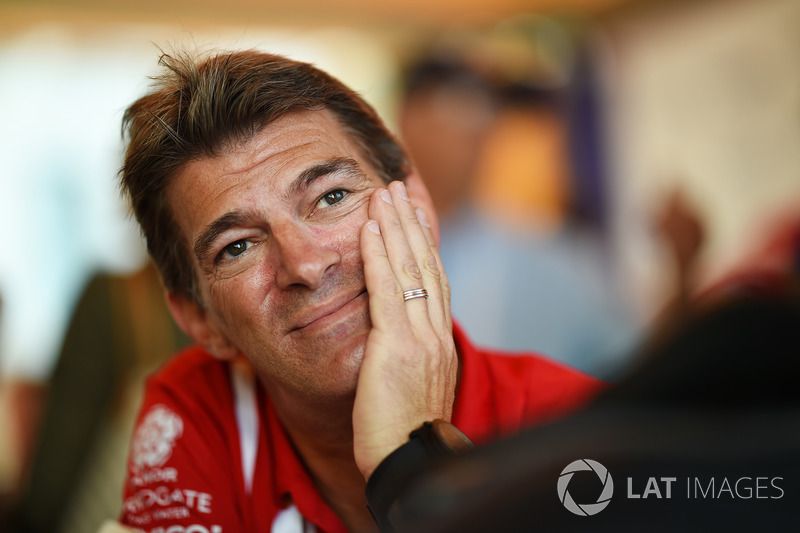
Graeme Lowdon, head of CEFC Manor
Photo by: Rainier Ehrhardt
«Whereas the whole idea of management is to create an environment where an athlete can perform.
«To a large extent Marc pioneered that with Lewis and we try to have the same approach with Zhou. Some drivers just have managers for a contract renewal and may want to have a third party for that, but our approach is different which is why we work with so few drivers.»
Lowdon explains that understanding how a driver spends his free time away from the track is vitally important to a driver and subsequently knows that could have a significant bearing on the terms of his contract.
He added: «Some management companies work with lots of drivers signed to them and in that instance it is buying knowledge, but that might not get the best out of the athlete. Some of the challenges for the young drivers in partially are quite common, there are some things you’ve never seen before, so coordinating everything is important, especially when it comes to F1 contracts.
«Little things like, we know how a particular driver performs well when he has a particular entourage with him, or not as the case may be, and his driver contract needs to reflect that. Otherwise he might be in a perpetual barney with the team over a pass for his grandfather.
«Another classic area is if you have negotiated a massive number of [sponsorship] days with the team and then there is an imbalance with what a driver has in terms of personal sponsors.
«Typically, sponsors for drivers is split between a racing context and a personal one, so a driver wearing a helmet in a race suit with some mechanics is very much a racing context, but him at home with his cat and mug of coffee is totally different. But if the dots are joined up, you might find yourself selling a sponsorship in a personal context and there are not enough days left for them to fulfil it.»
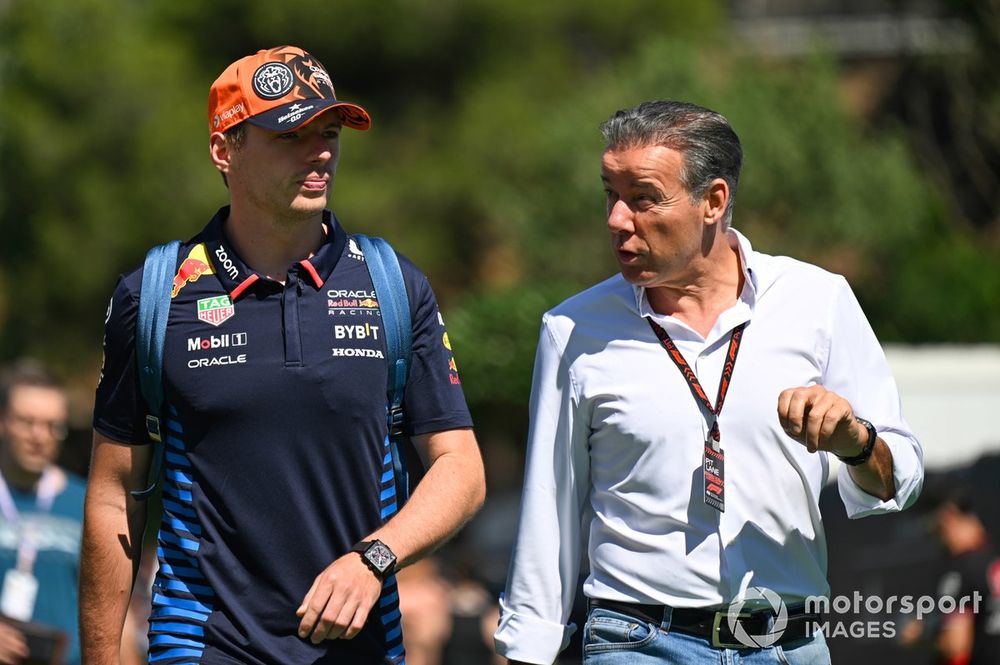
Max Verstappen, Red Bull Racing with his manager Raymond Vermeulen
Photo by: Simon Galloway / Motorsport Images
Who manages who in the F1 paddock?
Max Verstappen — Raymond Vermeulen (manager)
Vermeulen has been by Verstappen’s side since he made his debut in F1 with Toro Rosso in 2015 when he was just 17. Vermeulen worked with Verstappen’s father Jos during his time in F1 so it was only natural he would be enlisted to help navigate the Red Bull driver’s career. Vermeulen is responsible for running Verstappen’s business on a day-to-day business, working through his ‘to-do’ list on his notepad. Any decisions are presented to both Verstappens with the final say coming down to Max.
Sergio Perez — Julian Jakobi (agent), Luis Alberto Aguirre (manager)
Perez has a two-pronged approach. The vastly-experienced Jakobi has looked after the careers of some of the biggest names in F1 from Ayrton Senna, Alain Prost, Michael Schumacher, Jackie Stewart and David Coulthard. Meanwhile, Aguirre, a former sport journalist, acts as Perez’s manager on a day-to-day basis and travels with the Red Bull driver.
Lewis Hamilton — Marc Hynes (manager)
Former racing driver Hynes works for Hamilton’s Project 44 and is his manager on a day-to-day basis. Hamilton also has a small team that looks after his non-race PR and a lawyer who oversees his contract but generally he has a small entourage overseeing his negotiations.
George Russell — Mercedes and Harry Soden (management)
Russell is unique in that he still comes under Mercedes’ stable as a former Mercedes young driver. Negotiations however are handled by Soden, who is a director at Infinity Sports Management and has been working with Russell for over a decade.
Oscar Piastri — Jam Management (management team)
Jam stands for Jason Allen, Ann and Mark Webber, the trio who oversee Piastri’s career. Former Red Bull and Jaguar and Williams driver Mark, and his wife Ann, have worked in F1 for years, while Allen has over 20 years’ experience in building and growing organisations and is the Jam Sports Management Chairman.
Lando Norris — ADD Management (management team)
Norris has been working with Mark Berryman and Fraser Sheader for a number of years through karting and to F1. Both karted in the junior ranks before switching to management. Berryman travels to most races to be by Norris’s side and also works as an intermediary between McLaren and their driver.
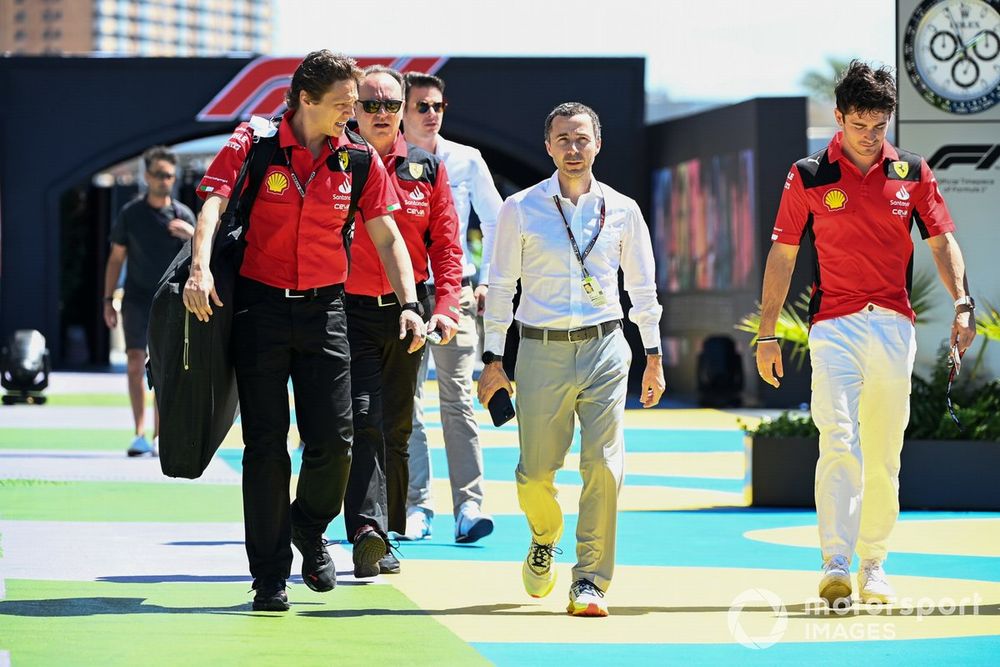
Charles Leclerc, Scuderia Ferrari, his manager, Nicolas Todt, arrive at the circuit
Photo by: Mark Sutton / Motorsport Images
Charles Leclerc — All Road Management (management team)
Leclerc’s management team consist largely of one figure, Nicolas Todt, the son of former Ferrari team principal and FIA President, Jean Tod. Nicolas has also managed former F1 drivers Daniil Kvyat, Felipe Massa and Pastor Maldonado.
Carlos Sainz — Carlos Onoro Sainz (manager)
Sainz likes to keep his F1 interests close to home, enlisting the help of his cousin to act as his manager. Sainz also turns to his father as a sounding board and did so over his protracted move to Williams for 2025.
Fernando Alonso — Flavio Briatore (manager)
Alonso has formed his own driver management company, A14 management with his close confidants Albert Resclosa and Alberto Fernandez, however, his own management has been done by Briatore for a number of years. The former Renault boss is now back at Alpine while Alonso is at Aston Martin.
Lance Stroll — Steve O’Connor and Mel Hoppenheim (management team)
When your father owns and runs the team you drive for, there is little need for an agent. However, Stroll has a group around him working as strategic advisors.
Nico Hulkenberg — Raoul Spengler (manager)
Hulkenberg used to use Michael Schumacher’s former manager Willi Weber but split in 2011 to take management into his own hands. He has since enlisted the help of Spengler since March 2018. Spengler previously managed the media and communications for surfer, Sebastian Steudtner.
Kevin Magnussen — Himself
The Dane had a bitter split with his former manager Dorte Riis Madsen and has since taken to managing his own career. Having been shown the door at Haas, he now needs to find a seat if he wants to remain in F1 next season.
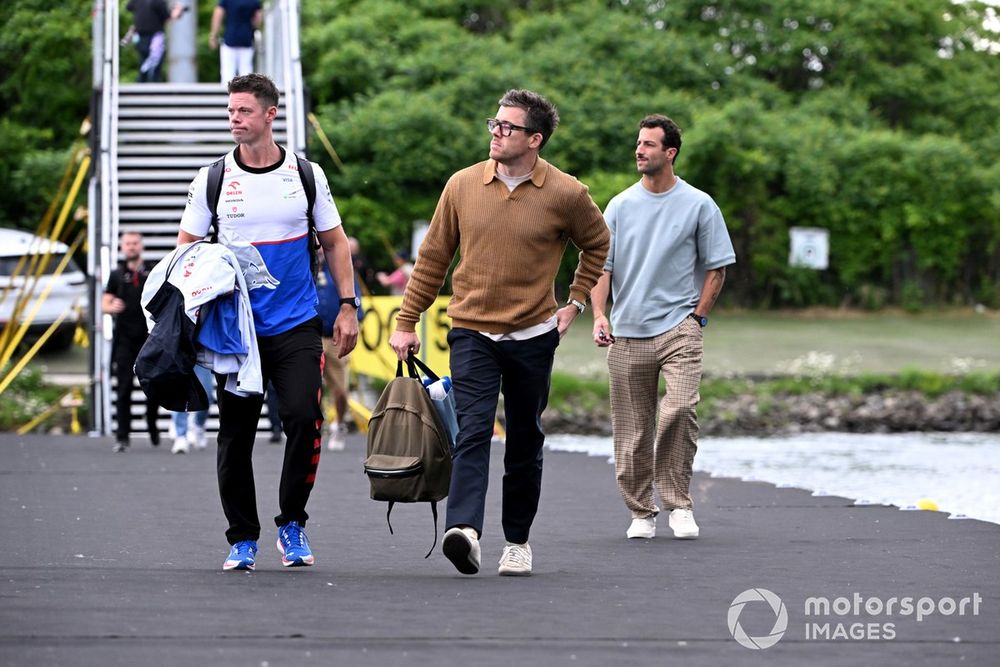
Daniel Ricciardo, Visa Cash App RB F1 Team, arrives at the track with his manager Blake Friend and Performance Coach Pyry Salmela
Photo by: Mark Sutton / Motorsport Images
Daniel Ricciardo — CAA (agent), Blake Friend (manager)
Like some other drivers, Ricciardo has split his structure. CAA — the global talent agency manage his commercial interests while the Australian employs Blake Friend to act as his manager. Ricciardo’s business ventures are probably the most widely engaged with out of all the current F1 drivers.
Yuki Tsunoda — Mario Miyakawa and Luis Alvarez (management team), Takashi Usami (operations/finance)
Tsunoda has a team around him to help him negotiate his interests, contrary to many who incorrectly presume it is Red Bull that manage him.
Valtteri Bottas — Didier Coton (manager)
Bottas enlists the help of Coton’s Aces Management Group, who have also worked with a number of other drivers in the past, including Mika Hakkinen and Olivier Panis, building key relationships with team bosses and major sponsors.
Zhou Guanyu — Graeme Lowdon and Marc Hynes (management team)
Lowdon and Hynes oversee all aspects of Zhou’s career to free him up to concentrate on driving for Sauber. The two are part of Equals Management and have a long history of working in F1.
Logan Sargeant — Gary Catt (manager)
Sargeant enlists the help of Catt, who works for Infinity Sports Management, the same company who advise Russell. Catt began his career in karting and had much success before forming his management company with Soden.
Alex Albon — Jacques Heckstall-Smith (manager)
Albon has entrusted Grip Sports Management to act as his management team, led by Heckstall-Smith, who worked with Albon during his time at Red Bull as a senior communication manager. Heckstall-Smith has also worked at Williams in a similar role.
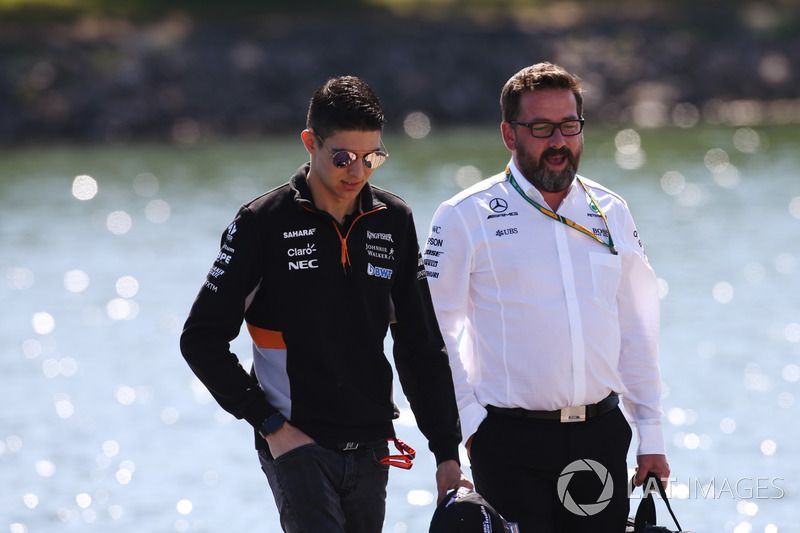
Esteban Ocon, Force India, Gwen Lagrue
Photo by: Charles Coates / Motorsport Images
Esteban Ocon — Gwen Lagrue (manager)
Ocon has strong links with Lagure, who runs Mercedes young driver programme and is the F1 team’s talent-spotter. Consequently, there is a bond that means Mercedes are effectively managing the French driver.
Pierre Gasly — Guillaume Le Goff (manager)
Gasly is managed by Le Goff of The Grid Agency, who has over 16 years of experience in motorsport having started out as a race engineer working with 10 drivers before they reached F1.








